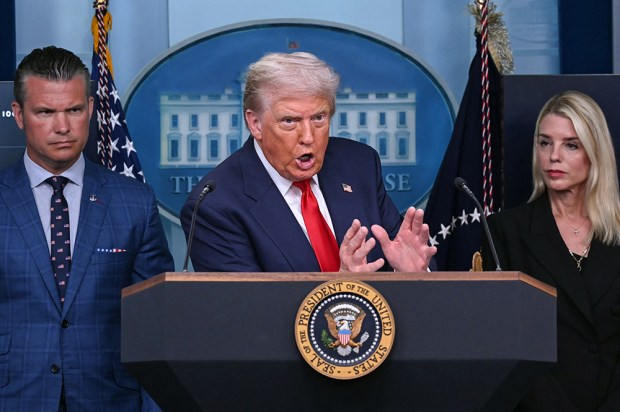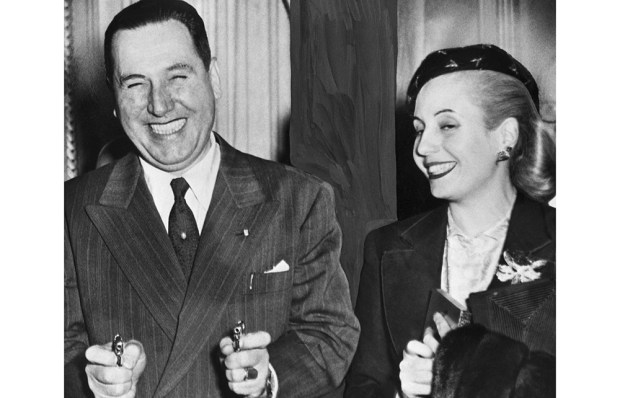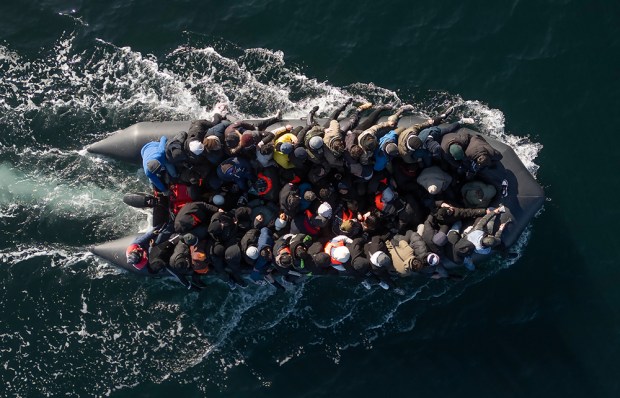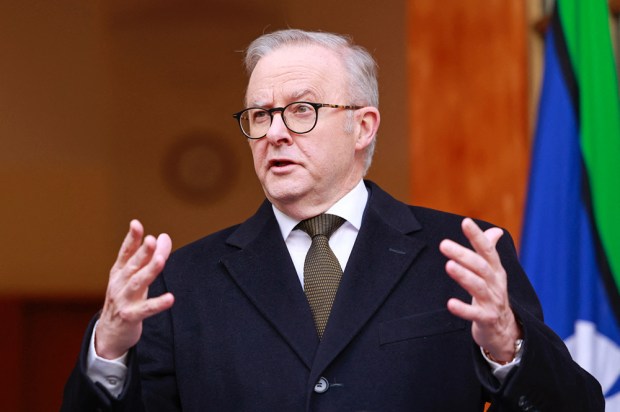Observing the Albanese government today, many older Australians could think they have been transported back fifty years to the days of Gough Whitlam.
True, Albanese Labor is yet to seek money from the Iraqi Ba’ath Socialist party to meet mounting campaign debts or employ a shady Pakistani businessman to bypass due process and secretly borrow four billion US dollars for ‘temporary purposes’. Nevertheless, today’s ALP did court Beijing-backed property developers and senior figures in the Chinese Communist party to secure donations and lock in Chinese votes in key seats. And foreign affairs is where the sense of déjà vu is especially striking including fundamentally realigning Australia’s traditional relationships.
In 1971 Gough Whitlam made a pivotal visit to China during which he decided to move Australia away from the United States’ orbit. Once in government he favoured a communist victory in Vietnam and ordered Asio to stop talking to its US counterparts.
Anthony Albanese’s latest China trip and his policies towards Beijing, the US, Israel and the UN, mirror Whitlam’s foreign policy playbook, especially his ambiguous approach to the US and his attitude towards Israel.
Like Whitlam, Albanese sees the China relationship as between two equal partners, ‘co-operating where they can and disagreeing where they must’. In 1972 when Australia’s economy was roughly a quarter of China’s and when trade was insignificant, Whitlam’s embrace of a seemingly benign China could perhaps have been justified. But today, China’s economy is ten times Australia’s. It is Australia’s largest trading partner and an assertive military power. That’s hardly equal. Beijing knows this and treats Australia like a vassal state.
On Israel, Whitlam promoted being ‘neutral and even-handed’ on its right to exist, but his actions during the Yom Kippur war demonstrated anything but.
Like Whitlam, Albanese claims to ‘balance the needs and rights of both Israelis and Palestinians’. Yet in his first term, one of his earliest decisions was to reverse Australia’s recognition of West Jerusalem as the capital of Israel.
Now he and his government have dropped the ‘balance’ pretence and openly support terrorist Hamas, calling for a two- state solution. It seems that, like most Israel critics, he won’t accept that having their own country is not what drives Palestinians, it’s a mission to exterminate Jews.
Whitlam advocated ‘the gradual increase in the size of (Australia’s) Arab population’ to ‘balance Jewish pressure’. According to the latest census there are now twice as many Arabs as Jews, and Muslims outnumber Jews seven times. Unfazed, the Albanese government adds further to the ‘Arab pressure’ by expediting 3,000 visas for Gazans, many without proper security checks.
But, like the world’s autocracies and sanctimonious Western leaders, Mr Albanese is ideologically driven and avoids reality. He mindlessly backs pro-Palestinian Sydney Harbour Bridge demonstrators, demanding Israel ‘comply immediately’ with international law, and declaring the situation has ‘gone beyond the world’s worst fears’.
Indeed.
But Albanese’s outrage would have been better directed at now deceased terrorist, Yahya Sinwar, chief architect of the 7 October 2023 atrocities, who intended to incite the war which followed and oversaw military installations embedded within or near hospitals and schools. He could also condemn Hamas, which doesn’t want peace and perpetuates the suffering of Palestinians by refusing to release hostages and disarm.
Instead, the Albanese government emboldens Hamas by blaming Israelis for crimes against humanity, leaving an increasingly isolated Israel with little alternative but to temporarily occupy Gaza City in an attempt to demilitarise it.
It seems, like Gough Whitlam, Mr Albanese is instinctively drawn to Karl Marx’s antisemitic sentiments and sees Jewry as the personification of liberal capitalism.
But similarities with the Whitlam government aren’t limited to foreign policy.
Labor’s Treasurer Dr Jim Chalmers like Whitlam’s treasurer, Dr Jim Cairns, is fundamentally anti-capitalist. Cairns was widely regarded as the chief theorist and spokesperson for the Labor left and argued for socialism, for workers’ control of industry and for advancing the class struggle. Cairns wanted to abolish capitalism and create a new socialist world for workers.
Dr Chalmers shares these views. He promotes Chinese-style socialism under the banner of ‘stakeholder capitalism’. The Treasurer’s mastery of spin uses the title, ‘humanising capitalism’, but the philosophy is the same. Dr Chalmers believes businesses should be judged on their corporate social responsibility, not just financial metrics. He advocates the transformation of the welfare state into a managerial utopia with the government, in collaboration with superannuation funds, acting as benevolent resource allocators through which autocratic and technocratic elites will manage all aspects of society.
Without doubt, Gough Whitlam’s time as prime minister significantly reshaped Australian society through radical changes across various sectors, including education, healthcare, Aboriginal rights, multiculturalism and women’s rights. Many of his socialist ideals have been adopted to a greater or lesser degree by governments on both sides of politics.
Whitlam’s decisive revisions and philosophical approaches to race and social equality align with Marxian critical race theory, particularly regarding ‘systemic racism’ and the role of the state in addressing racial inequities. The Albanese government’s ‘Voice’ referendum and its, subsequently withdrawn, Combatting Misinformation and Disinformation Bill, represent similar underlying Marxist and authoritarian predispositions.
Today, after fifty years of so-called social-democratic reforms, Australia boasts, per capita, the most public servants in the world. Its people are less free, less equal and less united. Homelessness is at a 25-year high and the decline in real per capita household disposable income has been among the worst in the advanced world. Tellingly, despite profound technological advances, productivity sits at a sixty-year low.
This reality alone should be enough to expose a failed experiment. That the misery being experienced in the UK, Cuba, Venezuela, Russia and now China, to name a few, is further proof of what socialism ultimately delivers. But no. Marxism is a faith, which, like absolutist theocracies, rewards its elites and enslaves the silent majority.
Sadly, without urgent reformation, future generations of Australians will learn that the sins of the parents are visited on the children.
Got something to add? Join the discussion and comment below.
You might disagree with half of it, but you’ll enjoy reading all of it. Try your first month for free, then just $2 a week for the remainder of your first year.













